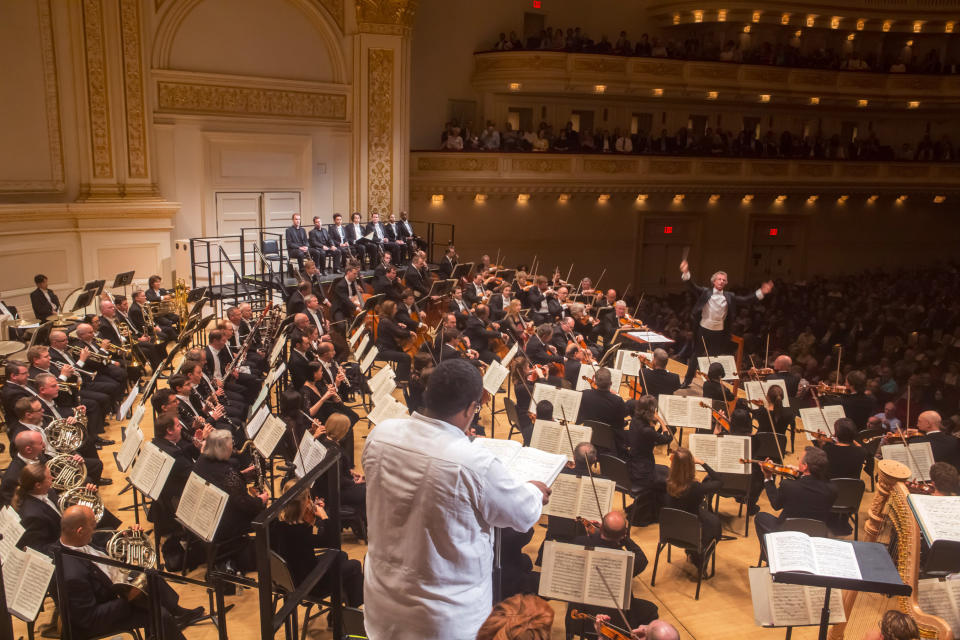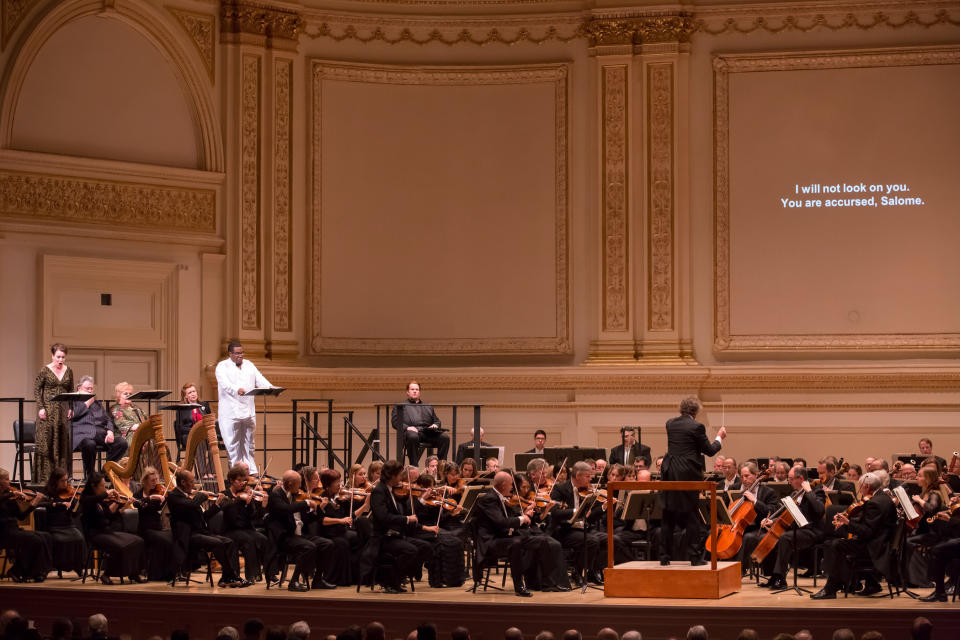Nina Stemme triumphs in 'Salome' at Carnegie
NEW YORK (AP) — Someone forgot to tell Nina Stemme that the opera season here is supposed to be over. Thank goodness!
The Swedish soprano brought a cheering capacity audience at Carnegie Hall to its feet Thursday night with a virtuoso performance in the title role of Richard Strauss' "Salome," supported by a strong cast and ably accompanied by the Cleveland Orchestra and conductor Franz Welser-Moest.
Once again, Stemme showed she is the real deal: a true dramatic soprano. With full, rounded tones, she repeatedly poured out blazing high notes to cut through the tumultuous climaxes of Strauss' orchestration, then lightened her voice to a lovely, delicate filigree for the quieter moments.
And though the performance was unstaged, Stemme used quick-changing facial expressions and nuanced phrasing to suggest the personality of the teenage Judean princess who demands the head of John the Baptist (Jochanaan) on a silver platter. She embodied the willfulness and wiliness of a spoiled brat, yet she also made Salome's hideously perverted sexual awakening seem almost pitiable.
Stemme has been much too rare a presence on the New York scene, with only 11 performances at the Metropolitan Opera in 12 years, and nothing more announced until 2016-17. The current Met season ended earlier this month with Wagner's "Ring" cycle — and anyone who heard Stemme's Bruennhilde in San Francisco a year ago knows how much her presence might have added to those performances.
Though Salome has the lion's share of singing, it's her stepfather, Herod, who gets the last word — ordering his soldiers to kill her after she has kissed the bloody lips of the beheaded prophet. In this role, too often taken by singers past their prime, Austrian tenor Rudolf Schasching was a revelation. He actually sang every note of the high-lying part — powerfully, too — and brought the demented character of the lecherous, superstitious monarch vividly to life.
As Salome's mother, Herodias, mezzo-soprano Jane Henschel sang with imposing vigor, especially in her upper register. Bass-baritone Eric Owens filled out Jochanaan's melodious phrases with fervor, though when he sang from offstage (supposedly at the bottom of a cistern) he was sometimes overpowered by the orchestra.
With the players filling the stage, the singers were arrayed on raised platforms set in back on either side. That made it hard for those at the rear — like the fine tenor Garrett Sorenson as the Syrian captain Narraboth — to be heard to maximum effect.
The Cleveland musicians reveled in the lush chromaticism and exuberant rhythms of Strauss' score, producing marvelous, shimmering sounds enhanced by Carnegie's acoustics. Welser-Moest led them in a technically expert performance that favored speed over subtlety and brought the one-act opera to a close in less than 100 minutes.




